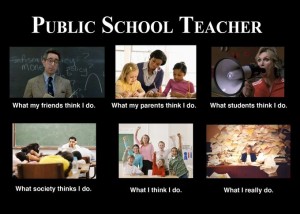
Teacher shortages over the past two decades have led states across the U.S. and non-profits like Teach for America to introduce new avenues for teachers to enter the classroom. As a result, the teacher workforce is younger, less experienced, and more likely to turn over. But due to these different paths, teachers are beginning their careers with different levels of preparation regarding what to teach and how to teach it. While research shows that inexperienced teachers are less effective in the classroom, it is unclear how these different preparation programs influence a teacher’s effectiveness in educating our students.
Vanderbilt University’s Gary Henry and colleagues addresses this issue in a research project that uses longitudinal data from North Carolina public schools. The researchers analyze the effectiveness of teachers with different types of preparation by classifying beginning teachers’ formal preparation and qualifications into 1 of 12 categories. Then they construct value-added models to examine how the kind of preparation a teacher has affects student achievement gains on end-of-course exams, controlling for a variety of student and school qualities.
The researchers find that in comparison to undergraduate-prepared teachers from in-state public universities, (1) out-of-state undergraduate-prepared teachers are less effective in both elementary grades and high school; (2) alternative entry, or teachers that entered the profession prior to completing requirements for initial licensure, are less effective in high school; and (3) Teach for America corps members are more effective in STEM subjects and secondary grades. These findings suggest that the creation of more pathways to prepare teachers have had both positive and negative implications for student performance.
Read the full article here:
Henry, G. T., Purtell, K. M., Bastian, K.C., Fortner, C.K., Thompson, C.L., Campbell, S.L., & Patterson, K.M. (2014). The Effects of Teacher Entry Portals on Student Achievement. Journal of Teacher Education, 65(1), 7-23.
Samantha Holquist is a graduate student at the University of Minnesota who studies K-12 education policy and leadership, education finance, and policy formation.




Comments